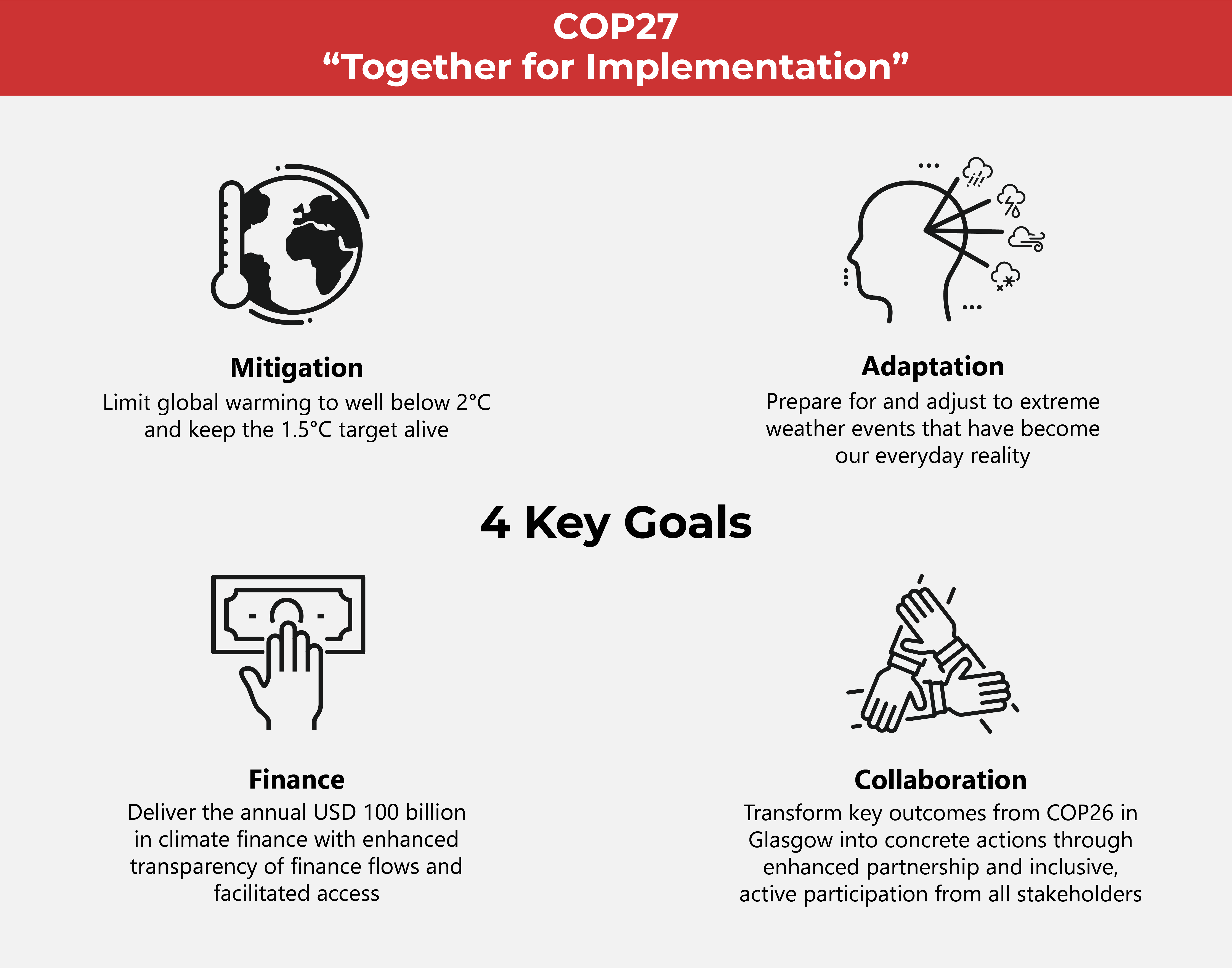Fighting To Save Mother Earth: Wins and Losses at COP27

From fossil fuel emissions to funding for damages from climate-induced disasters, find out the historic wins and heartbreaking losses at this year’s UN climate change convention.
Each year, representatives from nearly 200 countries gather to hash out global climate action for the next year. Countries put forward their plans to reduce carbon emissions and report on their progress to help limit global warming to 1.5°C.
This annual climate summit is called the Conference of the Parties to the United Nations Framework Convention on Climate Change (COP). COP27 was held in Egypt last November 6 to 18.
In this article, we zero in on critical issues discussed at the climate summit and evaluate any progress or setbacks in the fight against global warming.

“Loss and damage”
Looking back at history, we see that while today’s industrialized and post-industrialized nations may be responsible for the bulk of greenhouse gas emissions, low- and middle-income countries are bearing the brunt of climate change impacts.
A deal to create a fund to assist less-developed countries pummeled by climate-induced disasters was a tremendous diplomatic coup for vulnerable countries. In the past, many developed nations have pushed back against this proposal, fearing the legal ramifications of their historic emissions.
“The issue of loss and damage has been swatted away for 30 years since the early 1990s. For the most part, there has always been a sense that this was a losing issue,” Catherine Brahic, environment editor for The Economist, shared in this video.
“The first win [at COP27] was the very first acknowledgment, at this high political level, that the issue of loss and damage is here to stay and that it requires funds to flow from donor countries to the most vulnerable countries to the impacts of climate change. This was a real win for poor countries,” Brahic continued.
(Also read: It’s a Small Net-Zero World)
Adaptation
Climate adaptation measures such as protecting coastal wetlands, building seawalls, and planting drought-resistant crops can help vulnerable countries become more resilient to the impacts of climate change. But for poor countries, it is difficult to fund such projects. Fortunately, new pledges amounting to more than USD 230 million were made to the Adaptation Fund at COP27.
Ruth Townsend, a research fellow with the Environment and Society Programme at Chatham House, believes that climate adaptation must move to the forefront to minimize loss and damage from extreme weather events.
“Adaptation lacks a concrete goal, akin to the 1.5-degree limit, and few countries have set out plans to adapt to climate change,” Townsend shared. “Momentum will come when the promised ‘global goal on adaptation’ (GGA) is finally defined, to help mobilize finance and spur implementation.”
Fossil fuels
At COP26 in Glasgow last year, a key driver of global warming, coal, was explicitly mentioned in a climate summit decision for the first time. Delegates agreed to phase down coal power, a historic achievement that many hoped would lead to the demise of other fossil fuels.
Unfortunately, this hope died during negotiations as several nations blocked a proposal for the phaseout of all fossil fuels, not just coal.
“We had to fight relentlessly to hold the line of Glasgow," Alok Sharma, last year’s COP president and this year’s UK government representative, said during the summit. “Emissions peaking before 2025 as the science tells us is necessary? Not in this text. Clear follow-through on the phase down of coal? Not in this text. A clear commitment to phase out all fossil fuels? Not in this text.”
“I said in Glasgow that the pulse of 1.5 degrees was weak,” Sharma continued. “Unfortunately, it remains on life support. And all of us need to look ourselves in the mirror, and consider if we have fully risen to that challenge over the past two weeks.”
(Also read: COP26: Lessons Learned About Creating a Net Zero Future)
“Still in the emergency room”
COP27 was marked by tense negotiations that ran through the night, with representatives struggling to reach a consensus on global climate goals. Countries made promises and agreed on historic outcomes, but many were hugely disappointed by the climate conference’s failure to end the burning of fossil fuels.
“Our planet is still in the emergency room,” said United Nations chief Antonio Guterres. “We need to drastically reduce emissions now and this is an issue this COP did not address.”
As one of the Top 19 EMS companies in the world, IMI has over 40 years of experience in providing electronics manufacturing and technology solutions.
We are ready to support your business on a global scale.
Our proven technical expertise, worldwide reach, and vast experience in high-growth and emerging markets make us the ideal global manufacturing solutions partner.
Let's work together to build our future today.
Other Blog



